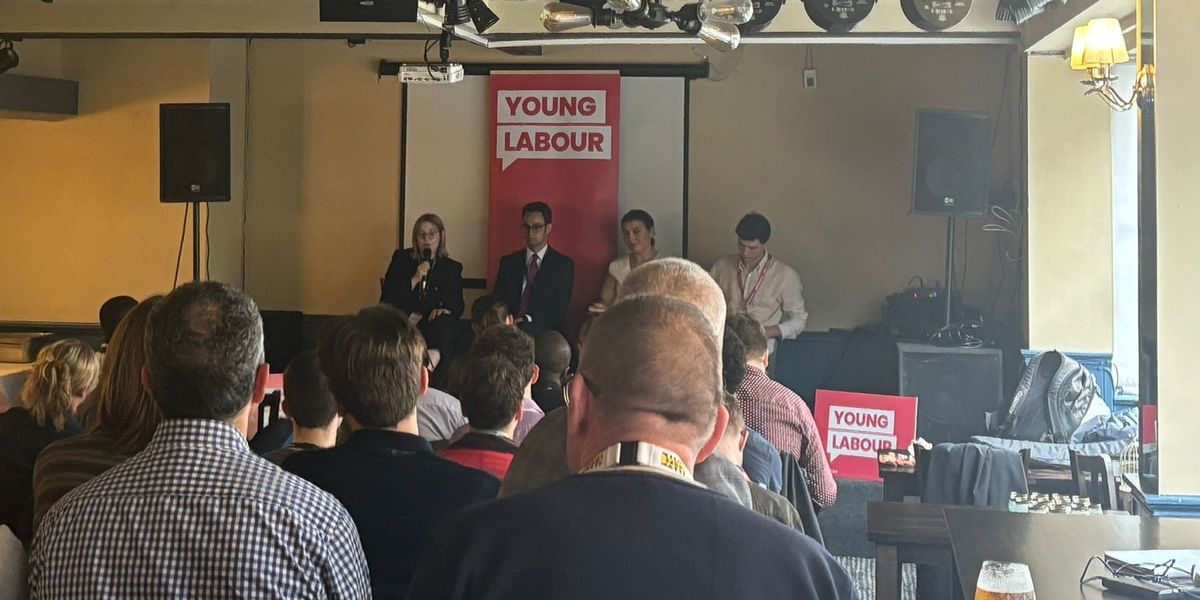The Rising Tensions: Reform UK and the Left’s Response at the Labour Party Conference
In the vibrant atmosphere of the Labour Party conference, a fringe event hosted by the far-left activist group Hope Not Hate has ignited a fierce debate surrounding the political landscape in the UK. The focus of this discussion was the controversial party Reform UK, which has recently gained traction and support, particularly following its annual conference in Birmingham. The event, held in a modest venue above a pub, featured a panel that included prominent figures such as Georgina Laming, Director of Campaigns and Communications for Hope Not Hate, and Labour MP Josh Dean.
A Scathing Critique of Reform UK
The event, titled “How can we tackle the rise of the far-right among young people?”, served as a platform for Laming to unleash a scathing critique of Reform UK. She did not hold back, labeling the party as “right-wing authoritarian b*****ds” and expressing her belief that while not all voters of Reform UK are far-right, the party itself embodies authoritarian principles. This assertion reflects a growing concern among leftist groups about the party’s rising influence and its potential to attract disillusioned voters from traditional Labour strongholds.
Laming’s comments were underscored by recent polling data from Hope Not Hate, which suggested that many Reform UK supporters are “progressive” and predominantly from the “white working-class” demographic that historically leaned towards Labour. This demographic shift poses a significant challenge for Labour, as it risks losing its core voter base to a party that many on the left view as a threat to democratic values.
The Context of Reform UK’s Rise
Reform UK has experienced a notable surge in support, particularly evident in the results of the recent general election, where the party secured second place in 98 constituencies. This performance is particularly alarming for Labour, which won 89 seats, as it indicates a potential shift in voter allegiance. In constituencies like that of Josh Dean, where the Conservatives had held sway since its inception in 1983, Reform UK’s presence is being viewed as a serious challenge.
The party’s recent conference saw an influx of over 2,700 new members in just 24 hours, signaling a growing grassroots movement that could reshape the political landscape. Nigel Farage, a prominent figure in the party, has expressed confidence in attracting Labour voters, citing past successes when he led UKIP and garnered more support from Labour than the Conservatives.
The Left’s Strategy Against Reform UK
The response from the left has been swift and organized. During the same event, Sunderland Central MP Lewis Atkinson called for a “coordinated sabotage” of Reform UK, identifying it as the Labour Party’s “number one target” in the North East of England. This rhetoric highlights the urgency felt by Labour and its allies in countering the perceived threat posed by Reform UK.
Hope Not Hate’s campaign against Reform UK is part of a broader strategy to combat what they see as the normalization of far-right ideologies in British politics. The group has previously targeted media outlets like GB News, advocating for boycotts of its advertisers and calling for its shutdown. This reflects a concerted effort to challenge narratives that they believe undermine progressive values and threaten social cohesion.
The Broader Implications
The tensions between Reform UK and leftist groups like Hope Not Hate are emblematic of a larger ideological battle within British politics. As traditional party lines blur and new political movements emerge, the landscape is becoming increasingly polarized. The rise of Reform UK signifies a shift in voter sentiment, particularly among those who feel abandoned by mainstream parties.
As the Labour Party grapples with these challenges, the need for a cohesive strategy to retain its voter base and counteract the influence of Reform UK becomes paramount. The discussions at the fringe event underscore the urgency of this task, as Labour seeks to navigate a rapidly changing political environment.
Conclusion
The events at the Labour Party conference illustrate the growing divide in British politics, with Reform UK emerging as a formidable force that challenges the status quo. As leftist groups rally to combat this rise, the implications for the future of Labour and the broader political landscape remain to be seen. The battle for the hearts and minds of voters is intensifying, and both sides are preparing for a contentious fight in the coming months.
